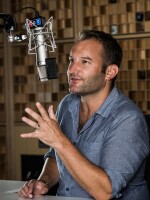DAVID GREENE, Host:
In Saudi Arabia, voters are going to the polls today for the third time in the kingdom's history. Only men will be participating in this election. The winning candidates will fill seats in about 300 municipal councils. That's the only level of government decided by voting. While women are banned from voting today, King Abdullah has decreed they will be able to vote in future elections, but the king's pledge has been overshadowed by the case of a Saudi women sentenced to 10 lashes on Tuesday for violating a ban on driving. There are reports now that the Saudi king plans to overturn that sentence.
And for the latest, we're joined by NPR's Soraya Sarhaddi Nelson, who's in the Saudi capital, Riyadh. Soraya, good morning.
SORAYA SARHADDI NELSON: Good morning, David.
GREENE: So we're talking about a case - a punishment of a women for violating a ban on women driving. But it sounds like she might be pardoned?
SARHADDI NELSON: Yes. What we're hearing from a tweet that was delivered by Princess Ameerah Al-Taweel - she's the wife of a billionaire nephew of the king - who says that her husband told her the sentence has been canceled. She credits the king for that and claims to have spoken to the woman who was sentenced, who also expressed her gratitude.
GREENE: Well, if the king does not intervene, if she is not pardoned, if the sentence is not canceled, what would be the next step for her?
SARHADDI NELSON: Well, her lawyer, Adnan Al-Saleh, says they've appealed the sentence. And it is important to note that the government has not made any official pronouncement about this sentence being rescinded or overturned or reviewed, or any such thing. But if this appeal goes forward, it would be heard within 30 days, and then the court could choose to reduce the sentence, throw it out or uphold it. And the woman, whose names is Shayma - we're not using her last name at her request because her family, apparently, is very upset with her about this incident - she also has to pay $130 for driving without a license.
GREENE: And I guess we should say, Soraya, that there are religious police in Saudi Arabia. I mean, women can be arrested for not wearing veils, for violating driving bans - I mean, for a lot of things like this.
SARHADDI NELSON: Absolutely. There actually isn't a law on the books, per se, that says women can't drive. But there are religious edicts and certainly, societal norms here dictate that women cannot get behind the wheel of a car.
GREENE: Well, it certainly seems like a day of some important symbolism for Saudi women. I mean, there's this case, and they're also left out of the polls in this election. But the king says that women will be able to vote and even be candidates in four years. I mean, what's the mood among Saudi women right now?
SARHADDI NELSON: Well, the ones I've interviewed since I've arrived, they're pretty disappointed they can't vote today. But unlike the registration period back in April, they aren't planning to do any protests - that I've come across, anyway - where they would go to the polls and try to vote. What they tried to do back in April was go to the polls to register. And a few of them were actually able to register but, of course, they weren't - it wasn't taken seriously. But at this stage, the women say they want to give the king time to fulfill his promises. And of course, also the sentence that was pronounced upon Shayma has made them a little more reluctant to go out and sort of flout the norms, if you will.
GREENE: We mentioned that these municipal counselors are the only real office determined by voting in the country - obviously, limited democracy in Saudi Arabia. I mean, how are the elections going? Are people actually - are they interested?
SARHADDI NELSON: Well, actually, if voter turnout is any indication, it's pretty - people are pretty disinterested in this. About one in 10 Saudi males have registered to vote this time around. And some of the voters, as well as the candidates, have been complaining that there's just very little information about where to go to vote, who the candidates are. There have been a lot of restrictions on how they can campaign. And on top of that, you have activists here who are very much calling for a boycott of these polls, because they say these municipal councils are meaningless, that they serve at advisory capacity only. They can't really deal with the issues of corruption or lack of government services. And so, many people here are looking for more meaningful political reform, where they'd actually be able to have more of a say in how the country is run.
GREENE: That's NPR's Soraya Sarhaddi Nelson, who's speaking to us from the Saudi capital, Riyadh. Soraya, thank you.
SARHADDI NELSON: You're welcome.
GREENE: You're listening to MORNING EDITION, from NPR News. Transcript provided by NPR, Copyright NPR.







